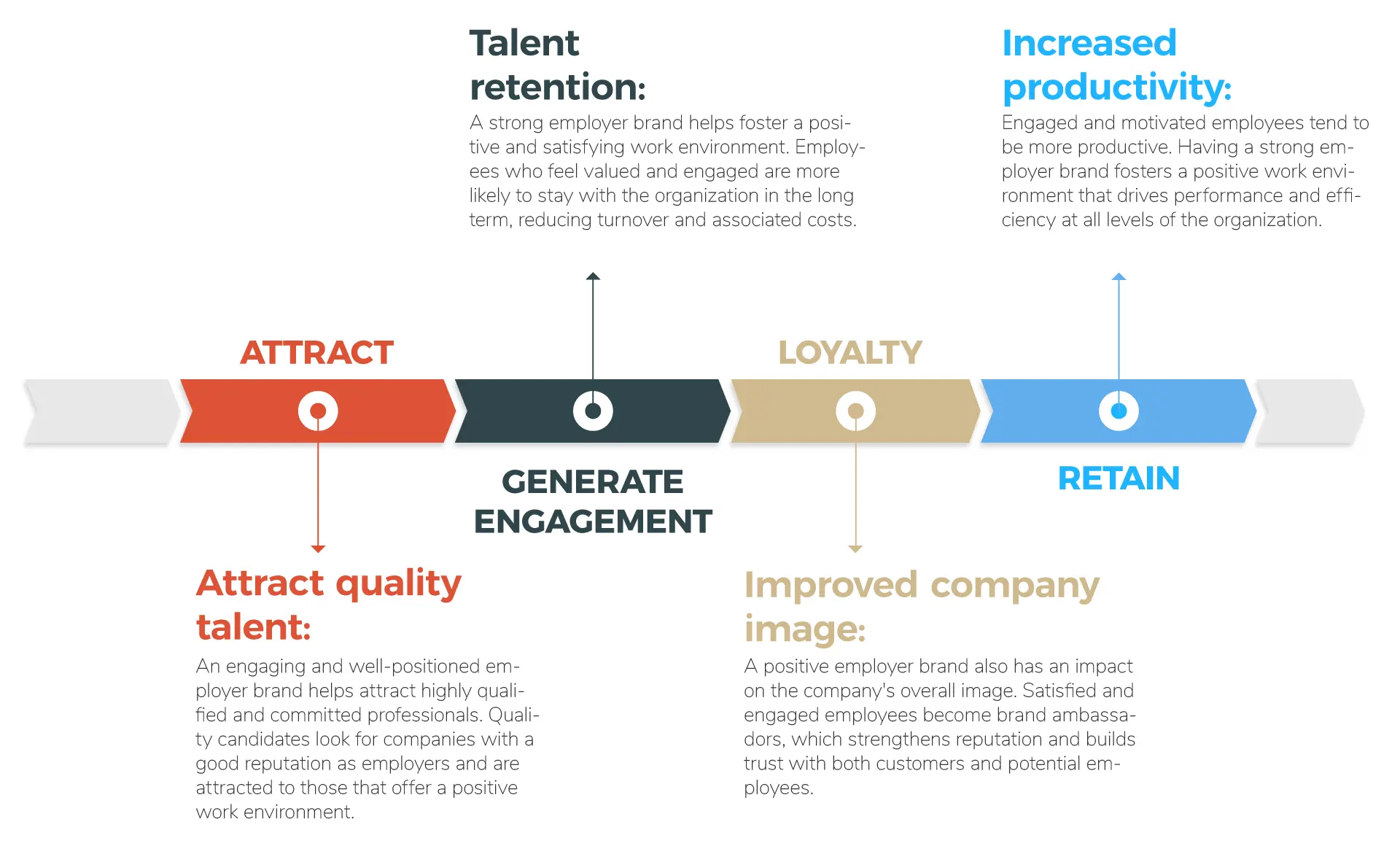
In an increasingly competitive work environment, having a solid Employer Branding strategy has become a necessity for organizations. Hybrid and remote work schemes have led to an increase in employee turnover in companies and a reduced sense of belonging.
Employer branding refers to the image and reputation that a company projects as an employer.
In this blog post, we will explore its importance and benefits, as well as key strategies to implement it successfully.
What is Employer Branding?
Employer branding is defined as the perception that current and potential employees have of an organization as a place to work. It is about building a positive company identity and image that attracts, engages and retains quality talent. Employer branding is not only limited to external attractiveness, but also seeks to generate a sense of belonging and pride among employees.
Why is it important to develop Employer Branding?

Strategies for Employer Branding
Creating a successful employer brand requires a strategic and consistent approach. Here are some key strategies to build and strengthen your employer brand:
Define the employee value proposition: clearly identify and communicate the benefits and advantages your organization offers as an employer. This includes aspects such as professional development, work environment, wellness programs and corporate values. Create a strong corporate culture: Foster a positive corporate culture based on clear and shared values. This involves establishing open communication, promoting collaboration, recognizing and rewarding employee achievements, and encouraging work-life balance. Improve internal communication: An internal communications agency can play a crucial role in building a strong employer brand. Be sure to establish effective communication channels that keep employees informed, engaged and motivated.
This includes promoting internal events and achievements, as well as transparency in communicating company decisions and goals. Boost presence on digital platforms: Use social media and other digital platforms to promote your employer brand. Share success stories, testimonials from satisfied employees and activities that reflect the company's culture and values.Share success stories, testimonials from satisfied employees and activities that reflect the company's culture and values. This will help drive interest and attract potential candidates.
Measure and constantly adjust: Conduct employee satisfaction surveys and collect feedback to assess the impact of your employer branding strategies. Use this data to make continuous adjustments and improvements to your approach.
In conclusion, Employer Branding has become an essential component of attracting and retaining talent in today's business environment. By implementing strategies that enhance the company's image, increase employee satisfaction and strengthen the connection between the organization and its talent, companies can enjoy lasting benefits, such as attracting the best candidates, reducing turnover and increasing employee productivity and engagement.
Qm Digital Agency's Internal Communication services division helps companies conceive, design and implement always-on campaigns that help achieve HR management objectives. Contact us to learn more.

